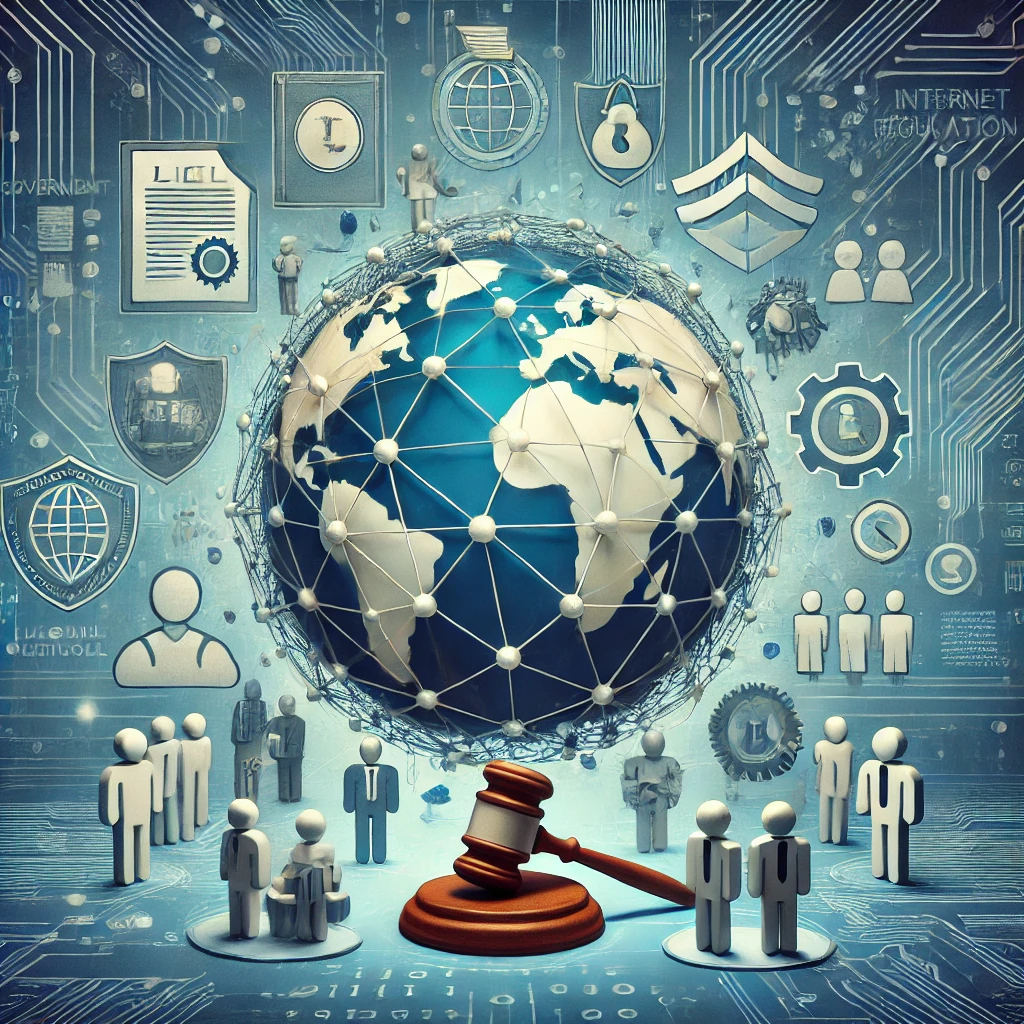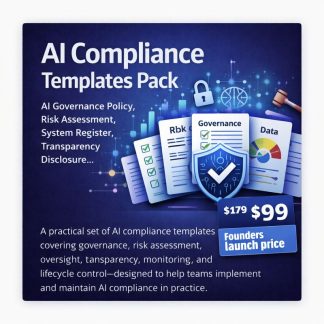
The regulation of the internet is a complex, multi-layered process involving various legal, technical, and policy frameworks across national and international levels. Unlike traditional industries, which often have a single regulatory body, the internet is governed through a combination of national laws, international agreements, private governance mechanisms, and technical standards organizations (Mueller, 2017).
1. National Regulation
Each country applies its own legal framework to govern the internet, covering areas such as privacy, cybercrime, content regulation, intellectual property, and e-commerce.
- Data Protection & Privacy Laws: The General Data Protection Regulation (GDPR) in the EU, the California Consumer Privacy Act (CCPA) in the U.S., and other national laws regulate how personal data is collected, stored, and processed (Kuner, 2020). According to Kuner, “GDPR represents a paradigm shift in data protection, with global influence extending beyond the EU’s borders” (2020, p. 3).
- Cybercrime Laws: Countries criminalize hacking, fraud, and other digital crimes through national legislation, such as the Computer Fraud and Abuse Act (CFAA) in the U.S. (Schwartz and Janger, 2022).
- Content Moderation & Censorship: Governments enforce laws on illegal or harmful content, including hate speech and child exploitation. For example, China’s Great Firewall imposes strict censorship, blocking access to websites like Google and Facebook (Creemers, 2018).
- Intellectual Property & Copyright: Laws such as the Digital Millennium Copyright Act (DMCA) in the U.S. or the EU Copyright Directive regulate the online use of copyrighted material (Geist, 2019).
- Consumer Protection & E-commerce Laws: Regulations ensure fair practices in online commerce, such as the E-Commerce Directive (EU) or Federal Trade Commission (FTC) regulations in the U.S. (Bradgate, 2016).
2. International and Regional Regulations
Since the internet is inherently global, international legal frameworks and cooperation play a crucial role:
- United Nations (UN): The UN, through bodies like the International Telecommunication Union (ITU), plays a role in global internet governance discussions (Drake, 2016).
- European Union (EU): The EU enforces regulations like GDPR and the Digital Services Act (DSA) to harmonize laws across member states (Borges, 2022).
- Council of Europe: Treaties such as the Budapest Convention on Cybercrime provide international cooperation frameworks for prosecuting cybercriminals (Svantesson, 2021).
- World Trade Organization (WTO): The WTO regulates aspects of e-commerce and cross-border digital services through trade agreements (Burri, 2021).
3. Technical and Private Governance
Several non-governmental organizations and private entities play a significant role in governing the internet’s infrastructure and standards:
- Internet Corporation for Assigned Names and Numbers (ICANN): Oversees the domain name system (DNS) and IP address allocations (Mueller, 2017).
- Internet Engineering Task Force (IETF): Develops technical standards, such as TCP/IP protocols, that allow the internet to function (Abbate, 2017).
- World Wide Web Consortium (W3C): Sets global standards for web development and accessibility (Berners-Lee, 2019).
- Private Companies: Major tech companies (Google, Meta, Amazon, Microsoft) establish their own rules for content moderation, cybersecurity, and data policies (Gillespie, 2018). Gillespie argues that “platforms act as regulators by default, shaping the digital public sphere through algorithmic governance” (2018, p. 21).
4. The Debate Over Internet Governance
There is an ongoing debate over how the internet should be regulated:
- Decentralization vs. Centralization: Should global internet governance be controlled by a single international body (like the UN), or should it remain decentralized among different stakeholders (Mueller, 2017)?
- State vs. Private Control: Governments argue for stricter regulations to protect national security and public order, while private companies advocate for self-regulation and minimal intervention (Balkin, 2020).
- Human Rights & Freedom of Expression: Some regulations (e.g., China’s censorship laws) raise concerns about free speech and digital rights (MacKinnon, 2012).
Conclusion
There is no single regulator of the internet. Instead, it is governed through a multi-stakeholder model that includes national governments, international organizations, private companies, and technical standard-setting bodies. This decentralized system creates both challenges (such as enforcement inconsistencies) and advantages (such as resilience against state overreach).
References (Harvard Style)
- Abbate, J. (2017) Inventing the Internet. Cambridge, MA: MIT Press.
- Balkin, J.M. (2020) The Free Speech Century. New York: Oxford University Press.
- Berners-Lee, T. (2019) Weaving the Web: The Original Design and Ultimate Destiny of the World Wide Web. New York: Harper San Francisco.
- Borges, G. (2022) The Digital Services Act and Its Impact on Internet Governance in the EU. Brussels: European Law Review.
- Bradgate, R. (2016) Commercial Law and the Internet. London: Routledge.
- Burri, M. (2021) Trade Governance in the Digital Age: World Trade Organization and Beyond. Cambridge: Cambridge University Press.
- Creemers, R. (2018) China’s Great Firewall and Global Internet Governance. Oxford: Oxford Internet Institute.
- Drake, W.J. (2016) The UN and Global Internet Governance: The ITU and Beyond. Geneva: ITU Publications.
- Geist, M. (2019) Copyright Law in the Digital Age: Challenges and Developments. Toronto: University of Toronto Press.
- Gillespie, T. (2018) Custodians of the Internet: Platforms, Content Moderation, and the Hidden Decisions That Shape Social Media. New Haven: Yale University Press.
- Kuner, C. (2020) GDPR and the Globalization of Data Protection Law. Cambridge: Cambridge University Press.
- MacKinnon, R. (2012) Consent of the Networked: The Worldwide Struggle for Internet Freedom. New York: Basic Books.
- Mueller, M. (2017) Networks and States: The Global Politics of Internet Governance. Cambridge, MA: MIT Press.
- Schwartz, P.M. and Janger, E.J. (2022) Cybercrime and the Law: The CFAA and Digital Security. Boston: Aspen Publishers.
- Svantesson, D. (2021) Extraterritoriality in Internet Law: The Budapest Convention on Cybercrime. Oxford: Hart Publishing.




